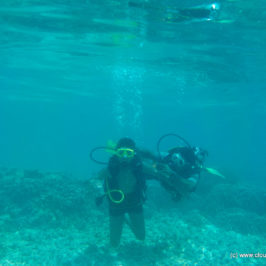5 Tips for Staying Safe While Travelling Abroad
Tourists, students, and people traveling for work might incur emergencies that they never really predict. For example, a flight delay or loss of passport are just a few of those incidents that one is never prepared for. However, with a travel insurance in hand, there is a cushion to fall back on. The risks might seem small, but they can affect travellers seriously, especially if they lack a good travel insurance plan.
5 hot tips for staying safe:
- Finish your paperwork. To minimize travel disruption, you must have documents in place -, signed, approved, and valid. Copying passports, visas, insurance policies, and other travel documents to family and friends provides points of contact should you be hurt or ill.
They may also need copies of credit cards, traveller’s cheques, prescription medications, and instructions on how and whom to reach in case of an emergency.
- Travel healthy. You must travel in the best physical condition following a thorough health checkup confirming you are healthy enough for extensive travel, in addition to the required vaccinations.
Some foreign destinations host poor health conditions. You should research local conditions and eating habits that might affect your allergies. And, if you have a current or chronic condition, you need to carry a copy of your medical records.
- Buy travel insurance. Good travel insurance is much more than just buying it for namesake. You need insurance specific travel insurance to the locations you have planned to visit. For instance, travelling to some politically-charged regions presents a higher risk of harm.
In case you are injured in a slip and fall incident, a traffic accident, or a natural catastrophe, you want confidence that the hospitalization and health care will be covered. If you’re a senior citizen, you may need special care and arrangements. So when you buy travel insurance, you want the most comprehensive package available.
- Don’t carry it all. You shouldn’t carry cash, credit cards, hotel keys, tech devices, and passports unless it is necessary. Pickpockets and thieves target backpacks, fanny packs, and handbags. So, you are better off if you can secure those items at your hotel or residence. In general, you should lower your profile to avoid calling attention to yourself with attractive jewellry and flashing a lot of cash.
As The New York Times points out, you need to know how to call for help wherever you are. Women traveling alone often face larger threats. However, women visiting India will find public transportation reserved for females. National Geographic reports, “Not only do people [in India] trust women more, they also tend to be more protective of them.” Still, they should not reduce their vigilance.
- Travel hi-tech. Technology affords you the opportunity to convert documents, personal records, airline tickets, and more into a digital format. With a smartphone, you can reach and share any data with signatories authorized to access.
With internet access, you can save information, notes, journals, and photos to cloud until you are where you can download the data. Contemporary travelers also have the benefit of smartphone applications to check in at airlines, trains, and hotels. You can pay without credit cards and access your banking authorization directly. All this lowers your risk of personal theft and injury.
A final tip
Travelers in vacation or business should protect their life, health, and property. Students planning to study abroad should consider a student travel insurance. Traveling after a good research and planning and along with travel insurance would guarantee you a peace of mind in your journey.







Leave a Reply